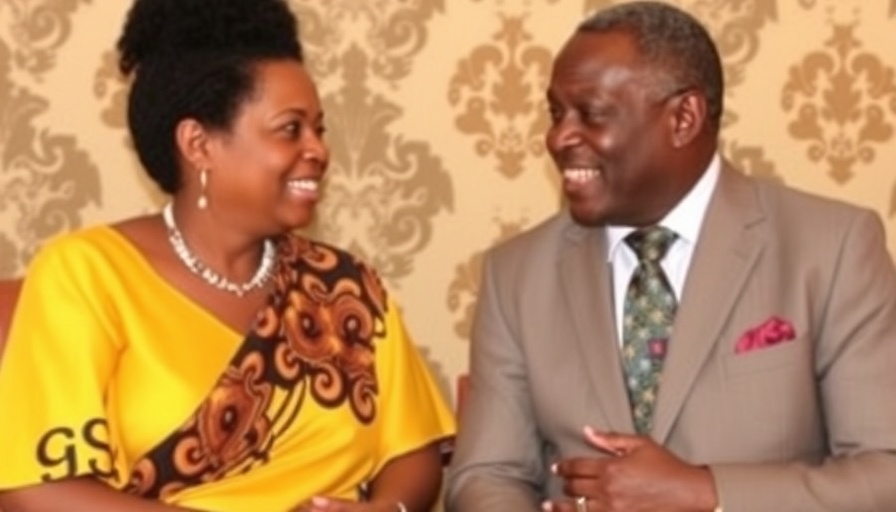
Byanyima's Heartfelt Plea: An Insight into a Nation's Wounds
In a poignant appeal to Ugandan President Yoweri Museveni, Winnie Byanyima, the wife of prominent opposition leader Kizza Besigye, has urged the government to release her husband, who has been a persistent voice against authoritarianism in Uganda. This moment serves not only as a personal cry for freedom but highlights the fraught relationship between the Ugandan government and its dissenters, a dynamic that reverberates throughout the East African region.
The Political Landscape: A Struggle for Democracy
The continued detention of Besigye, known for his vocal criticisms of the Museveni administration, underscores a concerning trend in African politics—government suppression of dissent. Political analysts watch closely as Uganda's handling of dissent impacts its international image and relations, particularly as global and regional observers push for democratic reforms. For business leaders and investors, this situation signals instability that can affect Uganda’s economic prospects and, subsequently, their investments.
Implications for Regional Stability and Economic Growth
Byanyima’s plea also reflects broader issues of governance and human rights within the context of African politics and governance. As Uganda grapples with the implications of political repression, neighboring countries are increasingly mindful of the socio-economic fallout. Diplomatic relations destine to link to stability and prosperity, thus affecting trade and investment flows across the region. Analysts note that regional bodies such as the African Union are key players in advocating for political freedoms that align with economic growth.
Global Voices: A Call to Action from the International Community
The international community, particularly organizations focusing on human rights, is closely monitoring the developments in Uganda. An outcry from Byanyima amplifies the need for diplomatic interventions that could safeguard individual freedoms and promote a stable investment climate. For policymakers and think tanks, this situation necessitates robust dialogue aimed at addressing governance issues that hinder Africa’s full integration into the global economy.
In light of these developments in Uganda, it is imperative for stakeholders across various sectors—business, politics, and civil society—to engage in dialogues focused on paving the way toward a more democratic and economically viable future in the region. The response to Byanyima's plea could be pivotal in determining Uganda's next steps on the world stage.
 Add Row
Add Row  Add
Add 


 Add Row
Add Row  Add
Add 

Write A Comment